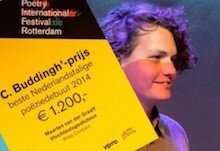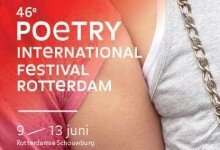Welcome to Croatian poetry - June 2006
In terms of contemporary Croatian poetry, I am delighted to introduce two poets of the generation which has just begun to make its appearance on the national literary scene. To judge by their first volumes of poetry, and the outstanding responses they received from both the reading public and the critics, we can say with confidence that these authors will have a significant impact on modern Croatian literature.
Apart from being members of the younger generation of poets, and being perhaps even the youngest, these two writers have nothing in common. Marijana Radmilović (1971) is a poet of extreme lyrical introspection directed above all towards her own internal world, whereas the poetic interests of Vlado Bulić (1979) focus on events in the external world, on a society that he is, in a way, compelled to take part in.
Put simply, in the case of Marijana Radmilović, the well-established detachment of modernism is imbued with a new freshness, and reflective poetry is lent an expressive power which has long been lacking in the country's contemporary poetry. The detachment primarily relates to her own world, which is restricted to the close family unit, through which the poet observes and records snapshots of the external world, which in her case means everything that falls outside the fundamental relationship of mother and son, or wife and husband.
Turning to Vlado Bulić, we can speak of a poetry of engagement in the sense that he is prepared to observe the seamy side of Croatian reality in its true aspect, as few other Croatian poets are willing to do. However, it appears that his overwhelming interest is in what happens to his lyric protagonist, and the way in which poetry can encompass the consequences of such an unflinching examination of the dark side of present day life in his country.
In fact, the ironic tone that dominates his poems, often hovering on the edge of passivity, is alien to engagement in the sense of a positive call for change. For this reason, the irony is not only a stylistic resource which points to his own authorial position in the poems, but above all a method of observing the darker, generally ignored, aspects of social reality with a clear eye, and presenting them without falsification. When focusing on people and events from the so-called fringes of society, Bulić describes them in a graphic and convincing way, thereby undermining the socially desirable image of reality as offered and imposed by the leading national media and other methods of social control.
Translated by Kim Burton








